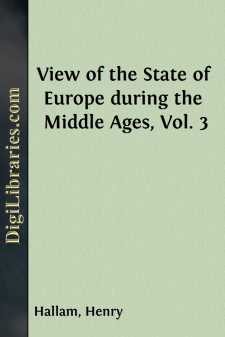Categories
- Antiques & Collectibles 13
- Architecture 36
- Art 48
- Bibles 22
- Biography & Autobiography 813
- Body, Mind & Spirit 142
- Business & Economics 28
- Children's Books 14
- Children's Fiction 11
- Computers 4
- Cooking 94
- Crafts & Hobbies 4
- Drama 346
- Education 46
- Family & Relationships 57
- Fiction 11829
- Games 19
- Gardening 17
- Health & Fitness 34
- History 1377
- House & Home 1
- Humor 147
- Juvenile Fiction 1873
- Juvenile Nonfiction 202
- Language Arts & Disciplines 88
- Law 16
- Literary Collections 686
- Literary Criticism 179
- Mathematics 13
- Medical 41
- Music 40
- Nature 179
- Non-Classifiable 1768
- Performing Arts 7
- Periodicals 1453
- Philosophy 64
- Photography 2
- Poetry 896
- Political Science 203
- Psychology 42
- Reference 154
- Religion 513
- Science 126
- Self-Help 84
- Social Science 81
- Sports & Recreation 34
- Study Aids 3
- Technology & Engineering 59
- Transportation 23
- Travel 463
- True Crime 29
View of the State of Europe during the Middle Ages, Vol. 3
by: Henry Hallam
Description:
Excerpt
Reign of Edward I.—Confirmatio Chartarum—Constitution of Parliament—the Prelates—the Temporal Peers—Tenure by Barony—its Changes—Difficulty of the Subject—Origin of Representation of the Commons—Knights of Shires—their Existence doubtfully traced through the Reign of Henry III.—Question whether Representation was confined to Tenants in capite discussed—State of English Towns at the Conquest and afterwards—their Progress—Representatives from them summoned to Parliament by Earl of Leicester—Improbability of an earlier Origin—Cases of St. Albans and Barnstaple considered—Parliaments under Edward I.—Separation of Knights and Burgesses from the Peers—Edward II.—gradual Progress of the Authority of Parliament traced through the Reigns of Edward III. and his Successors down to Henry IV.—Privilege of Parliament—the early Instances of it noticed—Nature of Borough Representation—Rights of Election—other Particulars relative to Election—House of Lords—Baronies by Tenure—by Writ—Nature of the latter discussed—Creation of Peers by Act of Parliament and by Patent—Summons of Clergy to Parliament—King's Ordinary Council—its Judicial and other Power—Character of the Plantagenet Government—Prerogative—its Excesses—erroneous Views corrected—Testimony of Sir John Fortescue to the Freedom of the Constitution—Causes of the superior Liberty of England considered—State of Society in England—Want of Police—Villenage—its gradual Extinction—latter Years of Henry VI.—Regencies—Instances of them enumerated—Pretensions of the House of York, and War of the Roses—Edward IV.—Conclusion.
Accession of Edward I.Though the undisputed accession of a prince like Edward I. to the throne of his father does not seem so convenient a resting-place in history as one of those revolutions which interrupt the natural chain of events, yet the changes wrought during his reign make it properly an epoch in the progress of these inquiries. And, indeed, as ours is emphatically styled a government by king, lords, and commons, we cannot, perhaps, in strictness carry it further back than the admission of the latter into parliament; so that if the constant representation of the commons is to be referred to the age of Edward I., it will be nearer the truth to date the English constitution from that than from any earlier era.
Confirmation of the Charters.The various statutes affecting the law of property and administration of justice which have caused Edward I. to be named, rather hyperbolically, the English Justinian, bear no immediate relation to our present inquiries. In a constitutional point of view the principal object is that statute entitled the Confirmation of the Charters, which was very reluctantly conceded by the king in the 25th year of his reign. I do not know that England has ever produced any patriots to whose memory she owes more gratitude than Humphrey Bohun, earl of Hereford and Essex, and Roger Bigod, earl of Norfolk. In the Great Charter the base spirit and deserted condition of John take off something from the glory of the triumph, though they enhance the moderation of those who pressed no further upon an abject tyrant. But to withstand the measures of Edward, a prince unequalled by any who had reigned in England since the Conqueror, for prudence, valour, and success, required a far more intrepid patriotism. Their provocations, if less outrageous than those received from John, were such as evidently manifested a disposition in Edward to reign without any control; a constant refusal to confirm the charters, which in that age were hardly deemed to bind the king without his actual consent; heavy impositions, especially one on the export of wool, and other unwarrantable demands. He had acted with such unmeasured violence towards the clergy, on account of their refusal of further subsidies, that, although the ill-judged policy of that class kept their interests too distinct from those of the people, it was natural for all to be alarmed at the precedent of despotism. These encroachments made resistance justifiable, and the circumstances of Edward made it prudent. His ambition, luckily for the people, had involved him in foreign warfare, from which he could not recede without disappointment and dishonour. Thus was wrested from him that famous statute, inadequately denominated the Confirmation of the Charters, because it added another pillar to our constitution, not less important than the Great Charter itself.
It was enacted by the 25 Edw. I. that the charter of liberties, and that of the forest, besides being explicitly confirmed, should be sent to all sheriffs, justices in eyre, and other magistrates throughout the realm, in order to their publication before the people; that copies of them should be kept in cathedral churches, and publicly read twice in the year, accompanied by a solemn sentence of excommunication against all who should infringe them; that any judgment given contrary to these charters should be invalid, and holden for nought....


